Tackling global challenges through AI collaboration: The 3rd Japanese-German-French AI Symposium in Tokyo
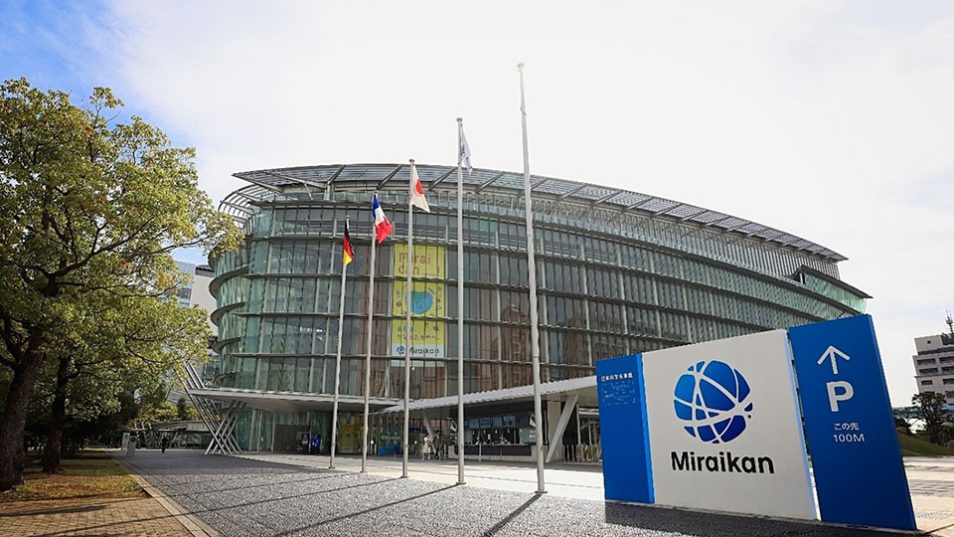 © DWIH Tokyo
© DWIH Tokyo
On October 27-28, 2022 the 3rd Japanese-German-French AI-Symposium: ‘AI for Planetary Challenges in the Anthropocene’ was held at Miraikan (The National Museum of Emerging Science and Innovation) in Tokyo. The two-day event, hosted by the AI Japan R&D Network, DWIH Tokyo (German Centre for Research and Innovation Tokyo) and the Embassy of France in Japan, was the last of three Japanese-German-French AI-Symposia, first and second of which being held in 2018 and 2020.
With the increasing intensity and frequency of extreme weather events due to climate change having enormous impacts on humanity, this year’s symposium addressed how AI technologies can be used to face planetary challenges. The symposium featured more than 60 speakers from all three countries, 24 of them from Germany, and attracted a total of 338 on-site visitors and 449 live viewers on Youtube. For the two days, Miraikan became a venue for lively discussions and insightful presentations in 14 sessions covering a wide range of AI topics.
The event was opened by Mr. Shoji Watanabe (Deputy Director-General, Cabinet Office Japan), H.E. Dr. Clemens von Goetze (Ambassador of the Federal Republic of Germany to Japan), H.E. Philippe Setton (Ambassador of France to Japan), and Dr. Hiroaki Kitano (AI Japan R&D Network, Sony Group and Sony Computer Science Laboratories Inc.).
‘AI for Climate Change Adaption’
The first plenary session ‘AI for Climate Change Adaption’ was chaired by Prof. Dr. Ronan Fablet (IMT Atlantique). Three experts discussed how AI can be used to enhance existing climate models used to predict extreme weather events. We are on the verge of climate tipping points such as the Gulf Stream collapse that will cause irreversible damage to the Earth’s ecosystems. Speakers in this session explored how AI can help limit this damage. A crucial question is how AI could help implementing effective policies to mitigate climate change.
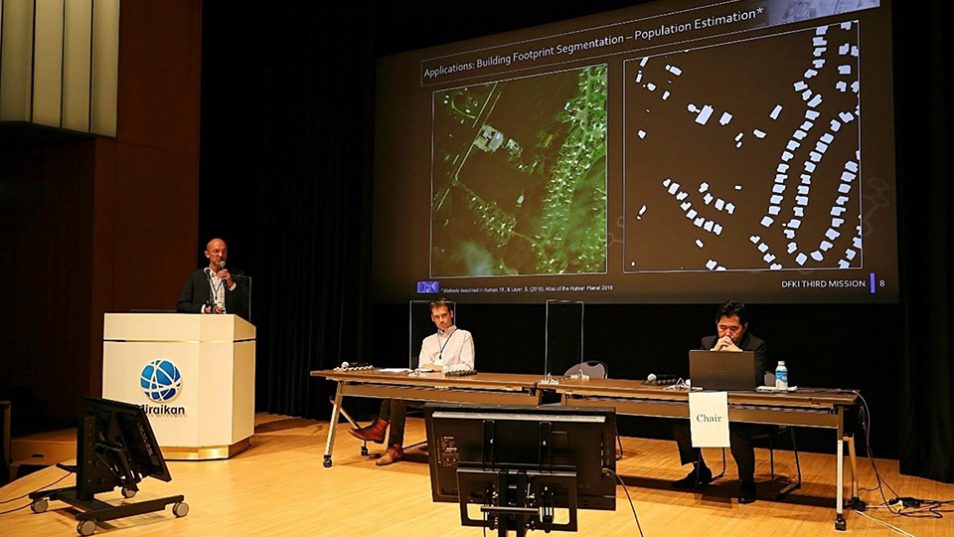
AI for a greener future
The first day of the symposium continued with three parallel sessions. The session ‘AI for Sustainable & Smart Cities’, chaired by Prof. Dr. Katharina Morik (TU Dortmund), discussed how AI applications can pave the way to carbon-neutral smart cities. The session ‘AI for Disaster Risk Assessment’ was chaired by Prof. Dr. Masashi Matsuoka (School of Environment and Society at Tokyo Institute of Technology) and discussed how AI could help the civil society to prepare for and respond to risks of abnormal weather events. And how could voluntary data help improve and validate algorithms in this process? In the session ‘AI in Agriculture’, chaired by Prof. Dr. Sonoko D. Bellingrath-Kimura (Leibniz Centre for Agricultural Landscape Research (ZALF)), it was emphasized that agriculture is both subject and a major influence on climate change. Can AI be the driving force for sustainable and environmentally-friendly agriculture?
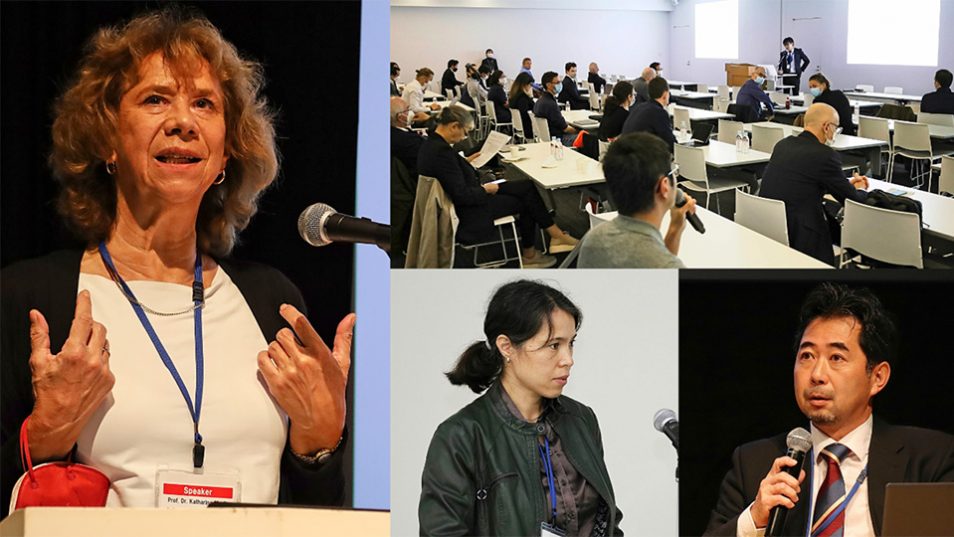
‘AI for a Sustainable Society’
The plenary session ‘AI for a Sustainable Society’ chaired by Prof. Dr. Prof. h.c. Andreas Dengel (German Research Center for Artificial Intelligence (DFKI)), focused on how AI can be used for peace and prosperity for people around the world. How can we design AI for human-machine collaboration rather than competition?
The first day ended with the special session ‘Presentation of Japan-Germany-France Joint Research Projects’ in which nine research teams presented their work in different academic fields. These projects are funded by a trilateral call which followed the 1st Japanese-German-French AI Symposium in 2018 by the funding agencies DFG, JST and ANR.
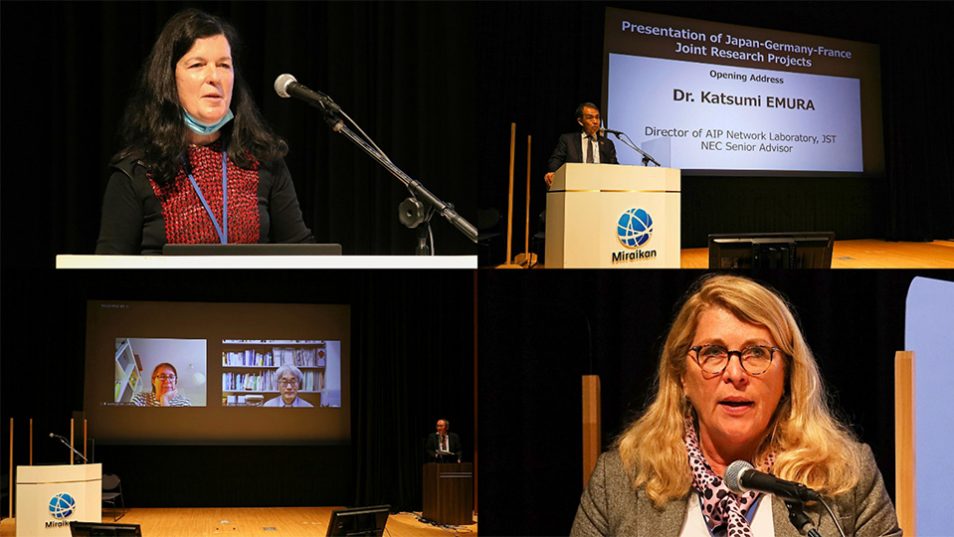
Opening of the second day: ‘Geopolitics & Governance of AI’
The second day of the symposium began with the plenary session ‘Geopolitics & Governance of AI’, chaired by Prof. Dr. Junichi Tsujii (Director of Artificial Intelligence Research Center at the National Institute of Advanced Industrial Science and Technology/AIST). From the German side, Prof. Dr. Ina Schieferdecker (BMBF) introduced the German AI strategy and the milestones reached so far.
This session further deepened the ideas about human-machine collaboration that already emerged throughout the various sessions on the first day. The speakers emphasized that we are entering a very complex era and that we do not yet have the right tools to confront that complexity. How do we regulate AI technologies and prevent the misuse of AI from increasing social division and vulnerability? And in what ways do we – at the same time – bring forward AI for Social Good instead?
After the panel discussion, eight start-ups from all three countries pitched on their broad variety of products and services during the special session ‘AI Shooting Stars’.
AI and humans should work hand in hand
The second day of the symposium featured six parallel sessions in two time slots. The first set included the session ‘AI for Biodiversity’ chaired by Dr. Samuel Chaffron (Researcher at CNRS and Nantes University). As biodiversity declines, AI may be one of the key technologies to halt its decline. Local data provided by users could be a huge help for monitoring species and observing the long-term development of populations. The session ‘Trustworthy AI’ was chaired by Marion Gardais (VP Head of Data and AI Center of Excellence at Capgemini South Central Europe). The experts in the session discussed algorithmic transparency. The parallel session ‘Education for an “AI Ready Society”’ was chaired by Prof. Dr. Florian Röhrbein (Chemnitz University of Technology). In education, machines support human work in many ways, but they are not suitable for every area. In fact, we see a rise in jobs that require social skills. Humans and machines work hand in hand – and they have to learn to do so.
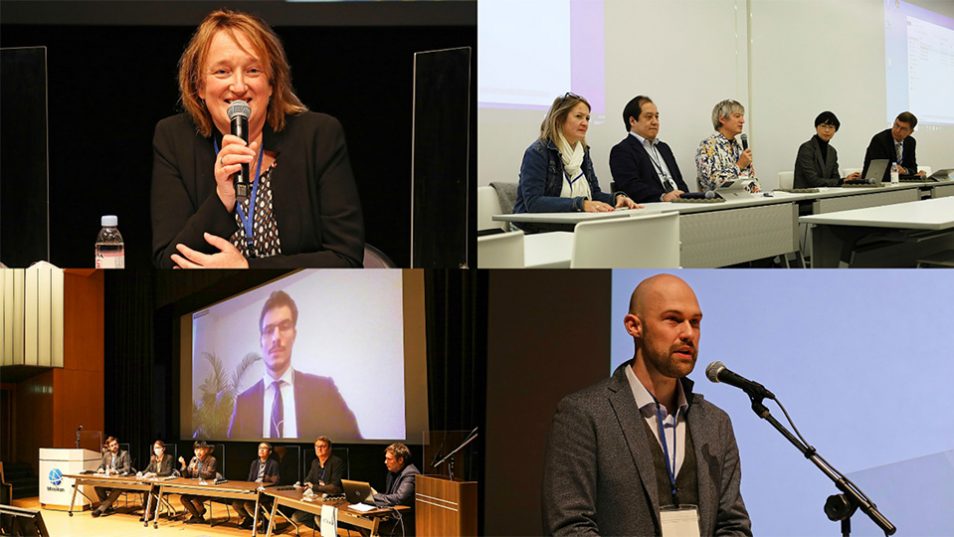
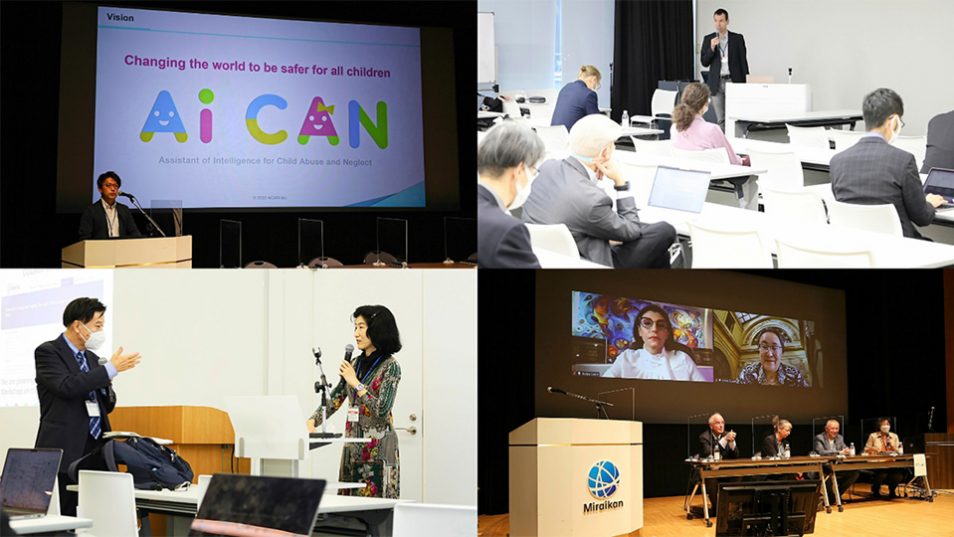
AI technologies in diverse fields
The second set of parallel sessions included the session ‘AI & Cybersecurity’, chaired by Prof. Dr. Jean-Yves Marion (Lorraine University, CNRS/Inria) in which speakers discussed the potential of AI in the areas of malware classification, intrusion detection, and alert correlation. While traditional security might be sufficient in some cases, specific attacks using machine learning require more specific, AI based solutions. The parallel session ‘Regulation & Democracy of AI’ was chaired by Dr. Arisa Ema (The University of Tokyo). AI technology already plays a big role in some areas, such as policy making and evaluation. Hence, certain risks are also increasing. How we can protect individual dignity and freedom in such times was one of the topics of this session. The parallel session ‘AI for Health’, chaired by Dr. Yusuke Nakamura (National Institutes of Biomedical Innovation, Health and Nutrition), also discussed the benefits that AI can bring to an aging society. AI is already used for a variety of applications including highly accurate diagnosis or effective treatment, but it can also improve nursing care on many levels.
Wrap-up and Closing Remarks
The 3rd Japanese-German-French AI-Symposium: ‘AI for Planetary Challenges in the Anthropocene’ concluded on the evening of October 28 with wrap-up commentaries from all session chairs and three closing remarks by representatives of each country. In the end, Dr. Yuichiro Anzai (CEO of The Tokyo Foundation for Policy Research and Senior Advisor of the Japan Society for the Promotion of Science), expressed his hopes for further international collaboration among the three countries.
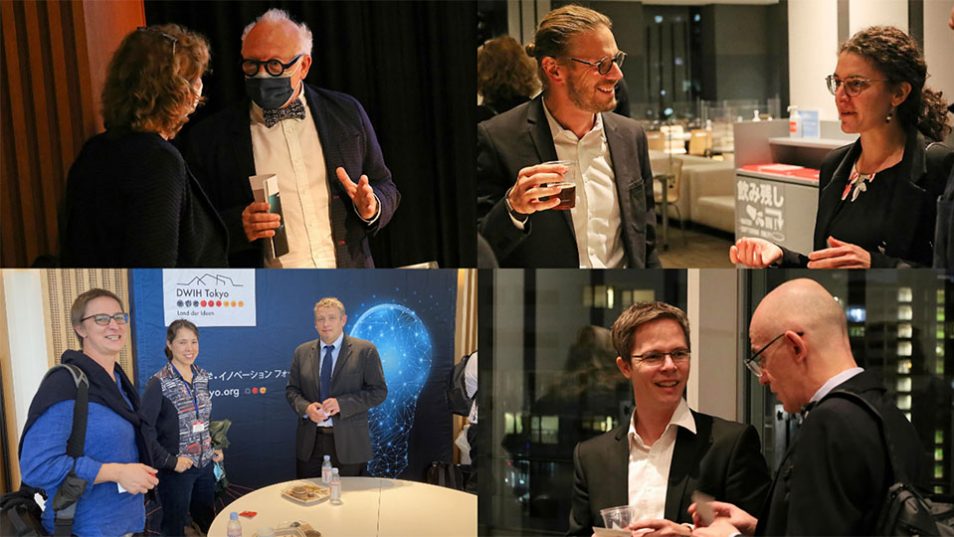
Although this was the last Japanese-German-French AI-Symposium to be held on this scale, cooperation between the three countries in the field of AI will continue in other ways. This was also put to record in the Joint Statement the three countries presented at the end of the symposium. The connections and expertise accumulated at this and the two previous symposia will serve as the basis for topic-specific events in the future.
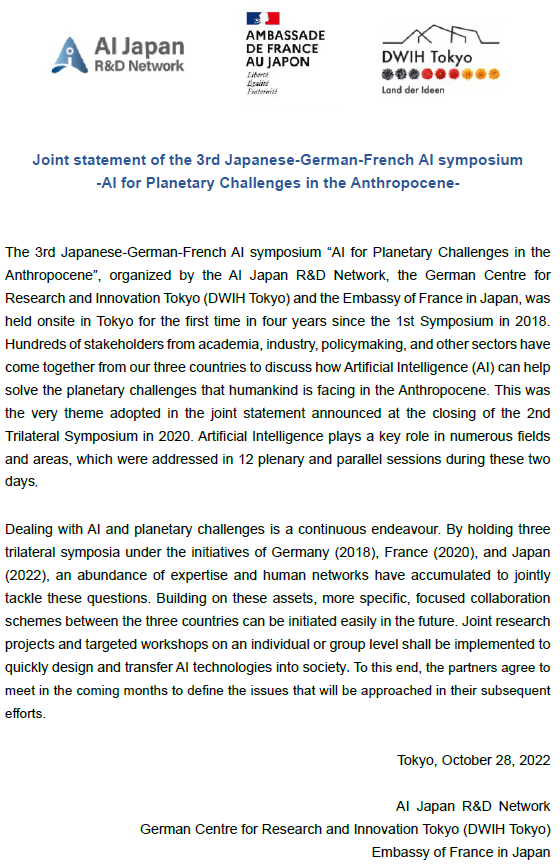
The merit of meeting in person
Many interdisciplinary discussions on AI took place not only during the sessions but also in between, making the entire symposium a lively discussion forum. Thanks to the setup onsite, many new connections were made by chance during the coffee breaks, evening receptions or on the way back to the hotel. There were also seven side events before and after the symposium, including several panel discussions, alumni meetings, fireplace talks and university lectures.
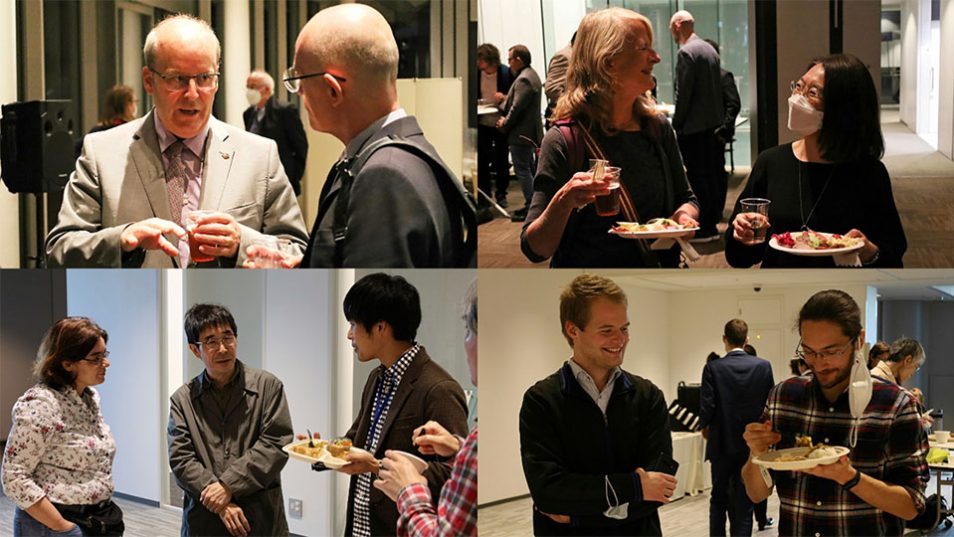
The trilateral symposium not only connected speakers from Japan, Germany and France but also brought lawyers together with machine learning experts, German startups fighting dementia with Japanese scientists in the field of aging societies as well as policy-makers with business representatives. Only one month later, the first follow-up workshop initiated by participants already took place in Tokyo and there are several follow-up events planned in the future.
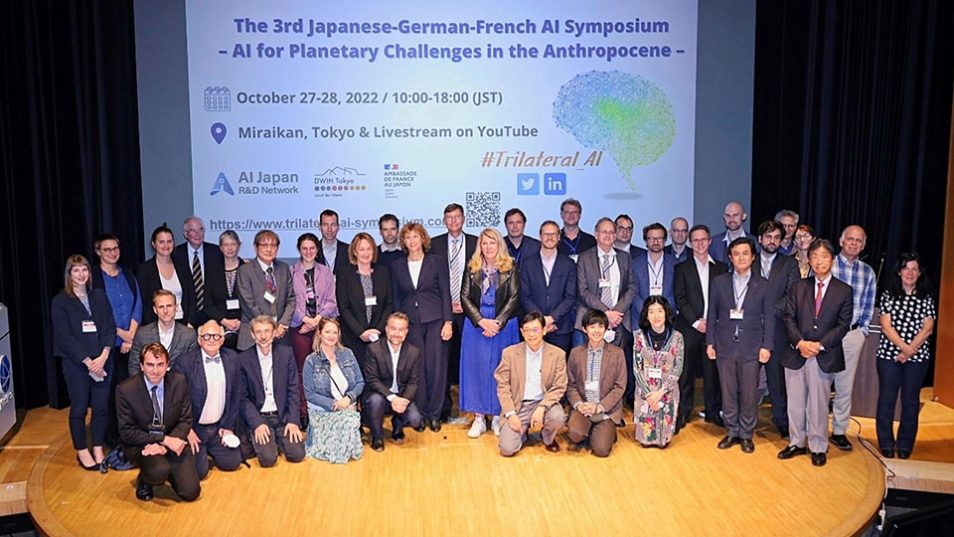
Report: Julian Witzorky (DWIH Tokyo intern)
The DWIH Tokyo newsletter provides timely information about open calls and events from research and innovation in Germany and Japan: Click here to register for the newsletter in English
